19位黑人经济学家的声音
当全世界都在为根除系统性种族主义(乔治·弗洛伊德之死促使这一话题迅速跃入集体意识)而努力的时候,黑人经济学家很有必要成为家喻户晓的人物。这些学者的研究工作将引领我们度过当下,并缔造一个更加长久、黑人社区不再受压迫的未来。事实上,这种压迫随后也会伤害整个经济体系。
黑人对经济学兴趣浓厚,因为这门学科的核心关注点在于谁在何时何地得到了什么,以及为什么会这样,而黑人太过频繁地发现自己处于美国财富和收入差距的错误一方。但正如经济学家丽莎·库克和安娜·吉迪·奥普库-阿吉曼最近在《纽约时报》发表的文章“我入错了行”所示,他们在进入这一职业的过程中遭遇到重重障碍。2017年的最新数据显示,每年只有3.2%的经济学博士学位颁发给了黑人。根据美国经济学会在2019年发布的一份报告,有超过52%的黑人经济学家经历过种族主义和/或歧视。在30年来发表的所有顶级经济学论文中,仅有不到0.5%的文章明确涉及种族/族裔问题。
近100年过去了,自从美国第一位黑人经济学家萨迪·亚历山大于1921年在宾夕法尼亚大学获得博士学位以来,情况并没有太大变化。她以倡导经济包容和公正为己任,尽管在前民权时代,她被剥夺了作为一位经济学家的执业能力。即使她被刻意排除在这一职业之外,她仍然继续利用自身的经济学专长推荐惠及工人阶级的政策主张。尤为值得称道的是,她提出的联邦就业保障最终获得了罗斯福总统的支持,从此成为进步主义政治的基础概念。
学者朱利安·马尔沃和尼娜·班克斯一直致力于挖掘亚历山大的演讲中蕴含的丰富宝藏。这位前辈学人热衷于利用经济学,通过政策服务于边缘化的声音,而正是这条共同主线,把黑人经济学家的早期工作与目前在这一领域耕耘的黑人学者连接在一起。菲利斯·安·华莱士是第一位获得耶鲁大学经济学博士学位的女性,侧重于研究工作场所中的种族歧视和性别歧视。亚伯拉罕·林肯·哈里斯在20世纪20年代和30年代发表了多篇重量级的经济学论文,他注重利用“阶级分析、黑人经济生活和劳动来阐明种族和种族意识形态的结构性缺陷。”
为扭转这一领域对黑人的公然排斥,如今的黑人经济学家热衷于通过各种组织来拓展非裔同仁的上升空间。这些组织包括国家经济协会、美国经济学会、经济学界少数族裔地位委员会、妇女科学、公平和种族研究所,以及萨迪集体组织。
在六月节(六月节为每年的6月19日,又称奴隶解放日——译注)发布这份名单,意在呼吁世人关注,并庆贺黑人经济学家在不同专业领域的学术成就。这些经济学家中既有成名已久的学界楷模,也有新近崛起的后辈学人。他们的研究和政策分析不仅有助于公众就如何改善黑人社区现状展开更深入的讨论,而且还会帮助决策者制定造福于每个人的政策纲领。请注意:这份名单当然不是详尽无遗的。
每位经济学家的名字后面是他们的主要研究领域(标注在括号里)。

达尼亚·弗朗西斯(教育),波士顿马萨诸塞大学教授。研究范围非常广泛,包括教师在课堂上的看法对黑人女学生教育结果的影响,对非洲裔美国人的经济补偿等等。学术志趣涉及劳动经济学、公共财政学、教育经济学和阶层分化经济学等领域。
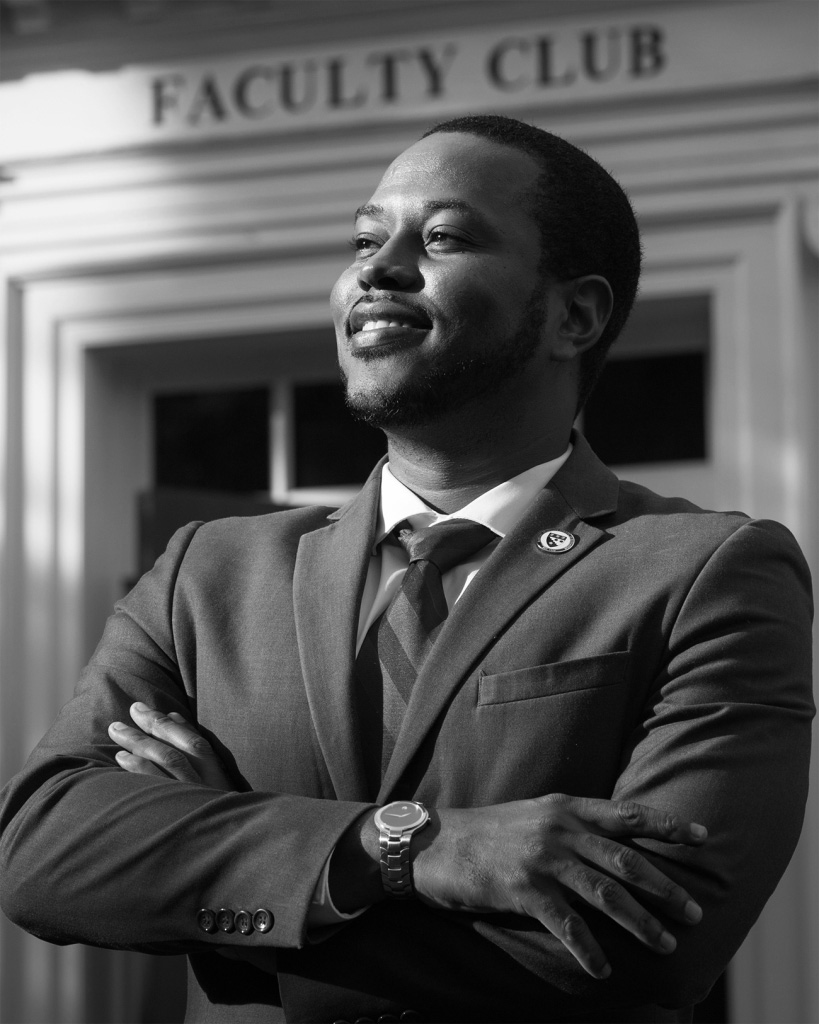
彼得·布莱尔(教育和工作的未来)任教于哈佛大学教育研究生院,并兼任该院劳动力研究项目联席主任。他还是美国国家经济研究局研究员、BE-Lab实验室首席研究员。BE-Lab是哈佛大学、克莱姆森大学和伊利诺伊大学厄巴纳-香槟分校合作创建的一个研究团队,致力于研究未来工作与未来教育之间的联系、劳动力市场歧视、职业许可和居住隔离等议题。

贾科瓦·威廉姆斯(种族和不平等)是经济政策研究所种族、族裔和经济项目的经济学家。她专注于探讨结构性种族主义在塑造种族经济差距方面的作用,涉及劳动力市场、住房、刑事司法、高等教育,以及对经济结果产生直接影响的其他领域。研究重点是南方文化,以及历史事件对南方黑人的政治行为和经济结果的影响程度。
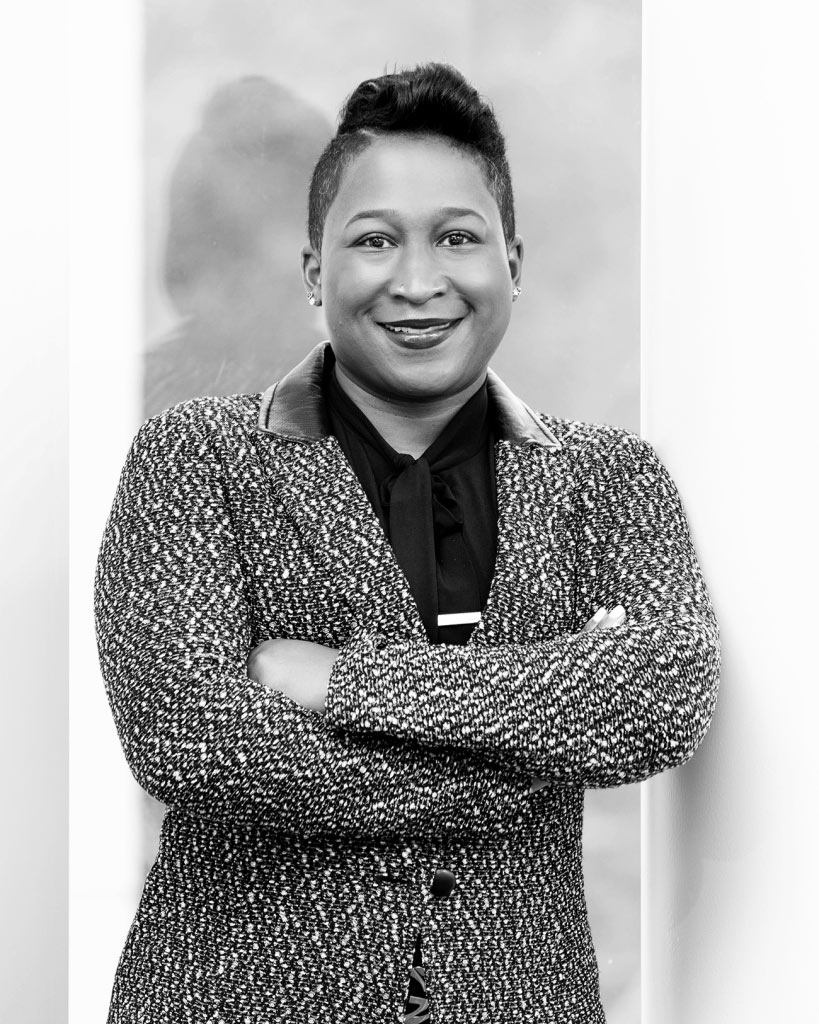
克里斯汀·布罗迪(种族与不平等),迪拉德大学商学院院长、巴伦·希尔顿金融经济学教席教授、KBroad咨询公司所有者。最近的著述包括“传递与占用黑人身份的成本和收益”、“佐治亚州传统黑人大学的梦想与实践:在后种族主义美国的持续相关性”,以及“自动化对种族和工作构成的高风险”。
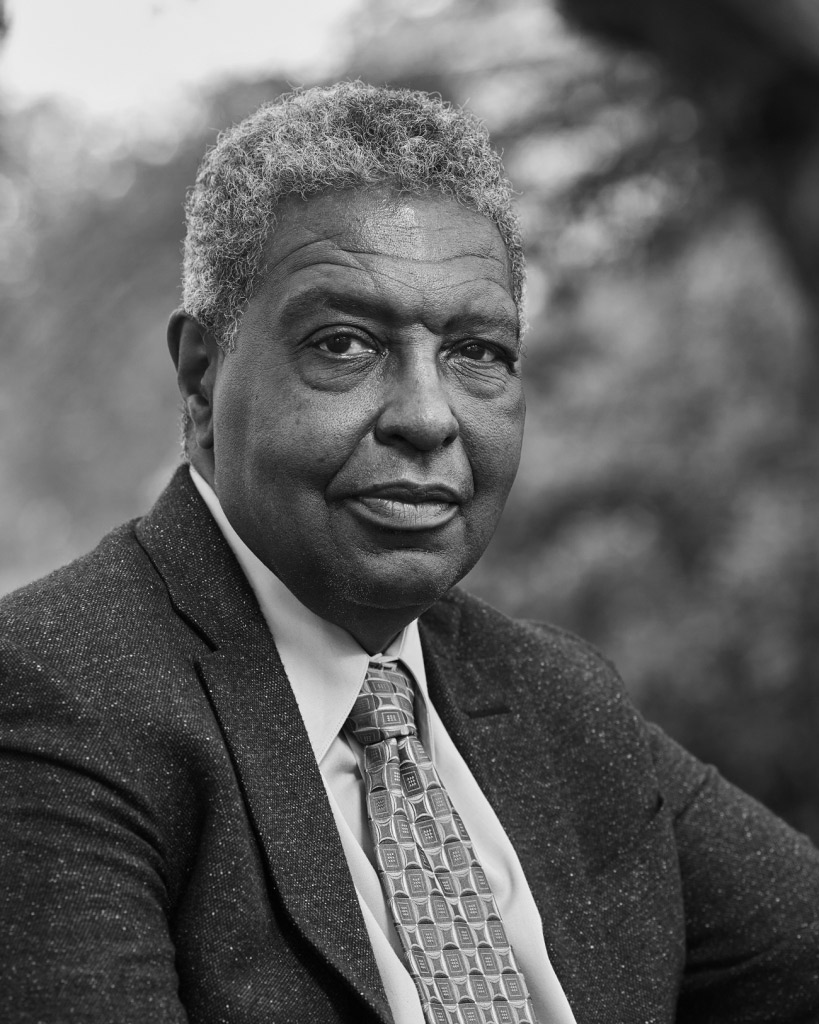
小威廉·达里蒂(种族与不平等),塞缪尔·杜布瓦·库克公共政策、非洲和非洲裔美国人研究教席教授、经济学教授、杜克大学塞缪尔·杜布瓦·库克社会公平中心主任。曾任杜克大学非洲和非裔美国人研究系主任、种族和族裔不平等研究网络创始主任。论文著述超过300篇,并在2005年开创了阶层分化经济学。他的研究重点是按种族、阶级和族裔划分的不平等、学校教育和种族成就差距、南北贸易和发展理论、肤色和劳动力市场结果、赔偿经济学、大西洋奴隶贸易与工业革命、经济学史,以及失业风险对社会心理的影响。最近与克尔斯滕·马伦合著《从这里到平等:如何在二十一世纪赔偿美国黑人》一书。

达里克·汉密尔顿(种族和不平等)是美国研究种族差异的主要经济学家之一,即将出任纽约新学院(The New School)种族、阶层分化和政治研究所的创始主任。研究领域极其广泛,从阶层分化经济学到经济和社会政策、种族、族裔、肤色主义、教育、卫生、劳动,再到资产和债务市场、家庭形成等等,不一而足。他的TED演讲有超过150万的点击量,在上一次总统大选期间引发了很多关于如何结束美国种族不平等的讨论。

特雷文·洛根(经济史)是俄亥俄州立大学经济系Hazel C. Youngberg教席杰出教授。作为国家经济协会迄今为止最年轻的主席,他专注于研究经济史和应用人口学。他拥有加州大学伯克利分校经济学博士学位。

威伦·约翰逊(国际经济学)是Komaza Inc.的总裁。这家咨询公司专注于提供经济和金融发展方面的指导和建议,包括小额信贷、安全部门资源管理,以及经济学在冲突管理中的作用。约翰逊有着广泛的非洲工作经历,最初是一名志愿教师,最近又担任非洲开发银行的美国执行董事。此外,她曾在美国联邦储备系统工作了20年,任职履历包括国际金融市场研究和运营职责。
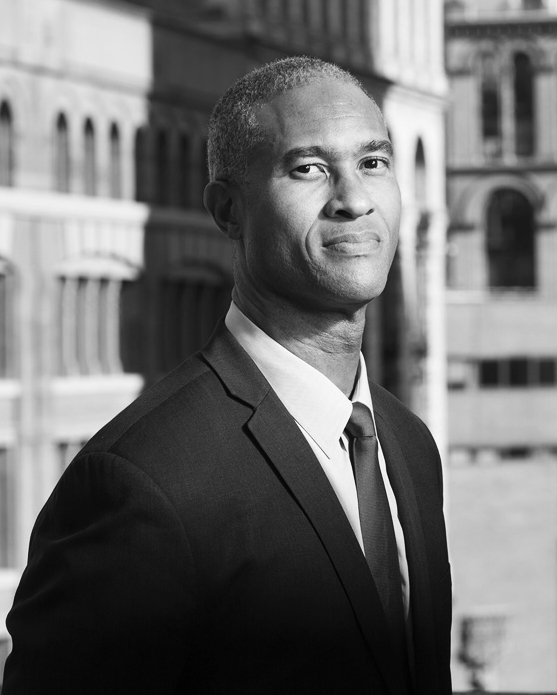
彼得·布莱尔·亨利(国际经济学),纽约大学伦纳德·斯特恩商学院前院长、William R. Berkley经济学商学教授。著有《逆转:第三世界对第一世界增长的教益》一书。研究兴趣包括国际金融、新兴市场、国际经济政策、全球化与贸易,以及宏观经济学。
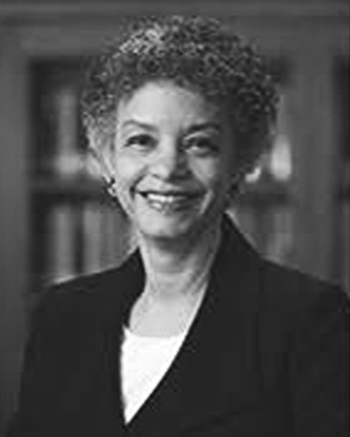
苏珊·柯林斯(国际经济学),密歇根大学临时教务长。2007年加入该校,在2017年之前一直担任杰拉尔德·R·福特公共政策学院院长。此前任教于乔治城大学和哈佛大学经济学系,并在布鲁金斯学会担任高级研究员(现在仍是该学会的非常驻研究员)。作为一位国际经济学家,她的研究兴趣包括理解和促进工业、新兴市场和发展中国家的经济增长。
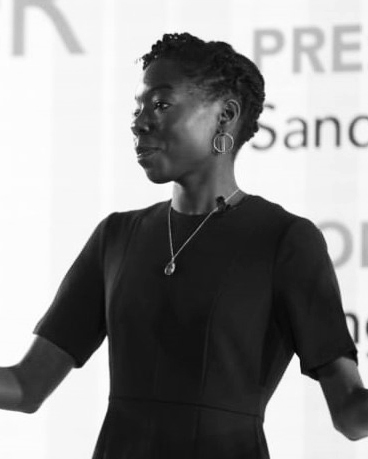
桑迪莱·赫拉奇瓦约(国际经济学)的学术志趣包括国际贸易、国际金融和宏观经济学。她是国际货币基金组织的经济学家,致力于通过预测建模、文本分析和战略展望工具(如情景规划)来识别和评估全球风险。她也是国际事务黑人专业人员理事会成员、美国经济学会经济专业LGBTQ+个人地位委员会的首任成员。
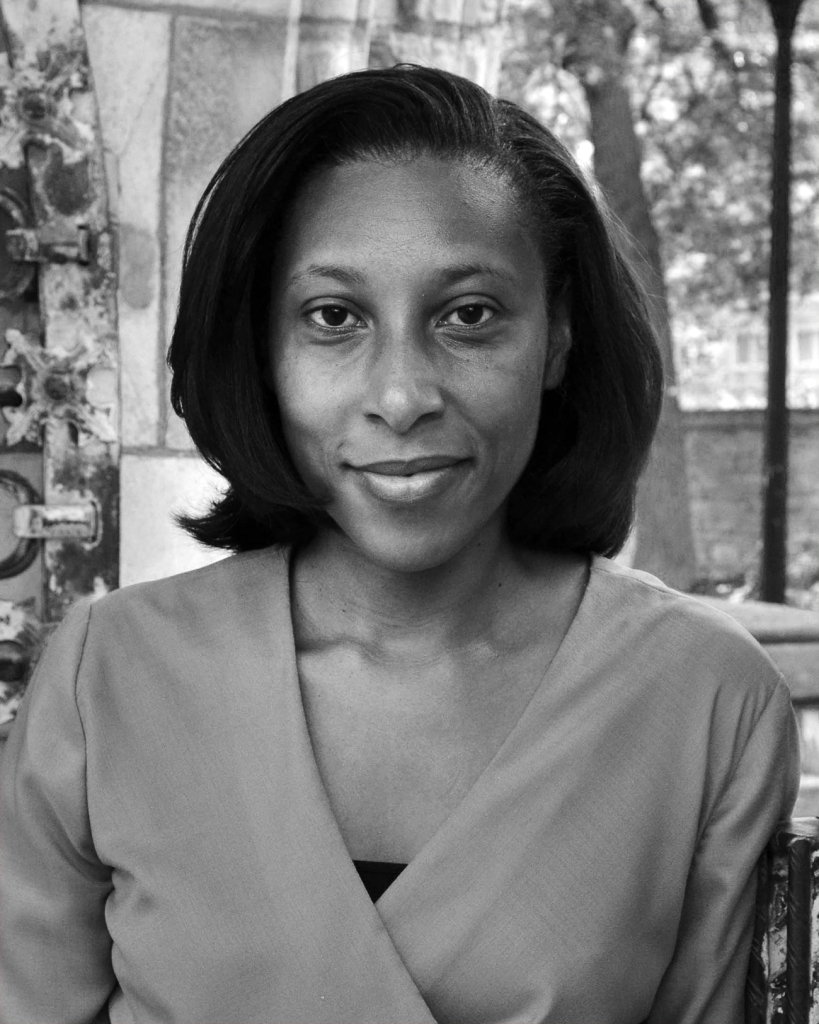
埃博尼亚·华盛顿(公共财政),耶鲁大学教授,专攻政治经济学,致力于探究政治态度的形成,以及边缘化人口如何利用政治制度来实现经济需求等问题。在最近发表的一篇论文中,她把目光转向自己的职业,询问经济学家能做些什么来增加这一群体的种族和族裔多样性。
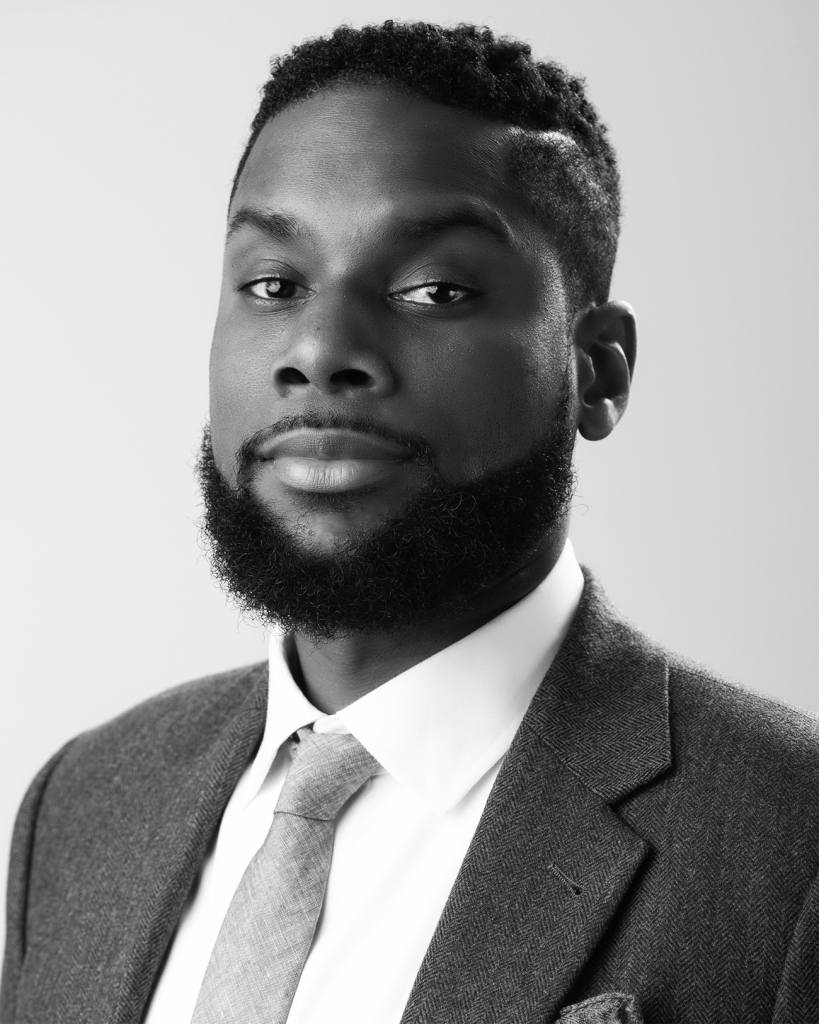
达蒙·琼斯(家庭金融和公共财政),芝加哥大学哈里斯公共政策学院副教授,其研究涉及公共财政、家庭金融和行为经济学这三大领域的交叉地带,尤为关注不平等问题。曾在斯坦福经济政策研究所担任博士后研究员(2009-10年),目前还是国家经济研究局的教职研究员。
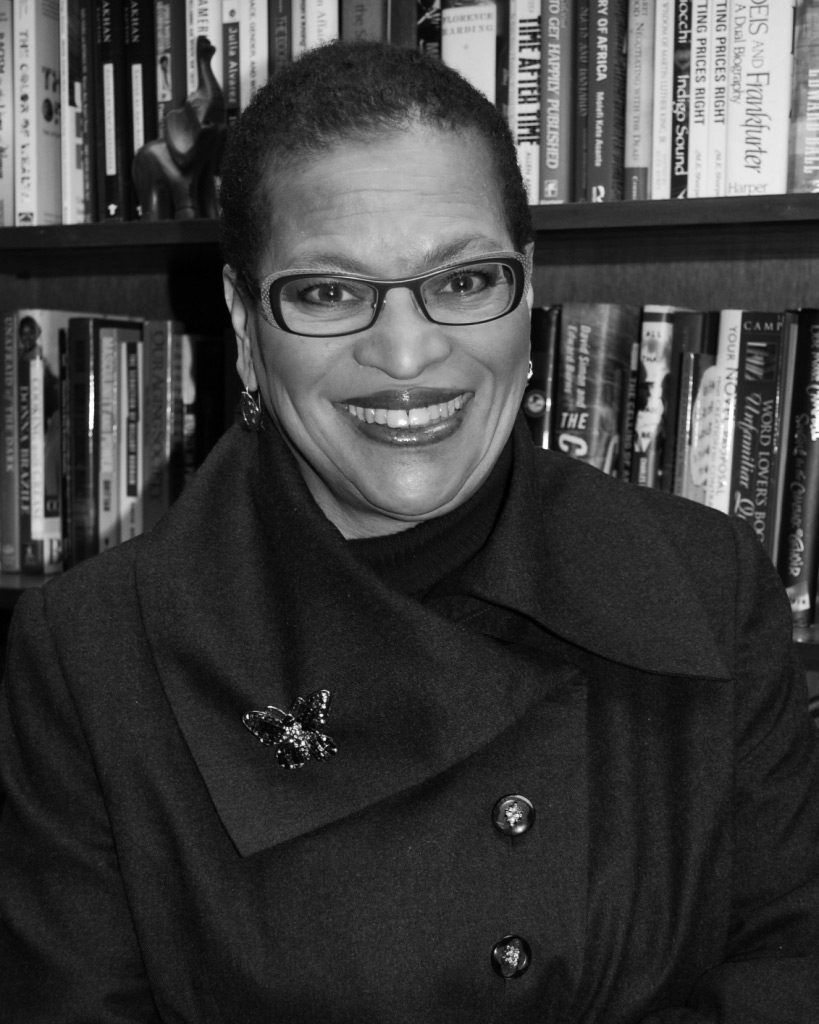
朱利安·马尔沃(公共财政)长期以来一直以其进步和深刻的观察而闻名。她是一位劳动经济学家,曾被科内尔·韦斯特誉为“这个国家最反传统的公共知识分子”。她对种族、文化、性别及其经济影响等问题的公共对话所作的贡献,正在深刻地影响着21世纪美国的公众舆论。曾担任传统上只招黑人女性的贝内特学院的第15任校长。其著述涉及种族、阶层和黑人妇女经济学等领域。
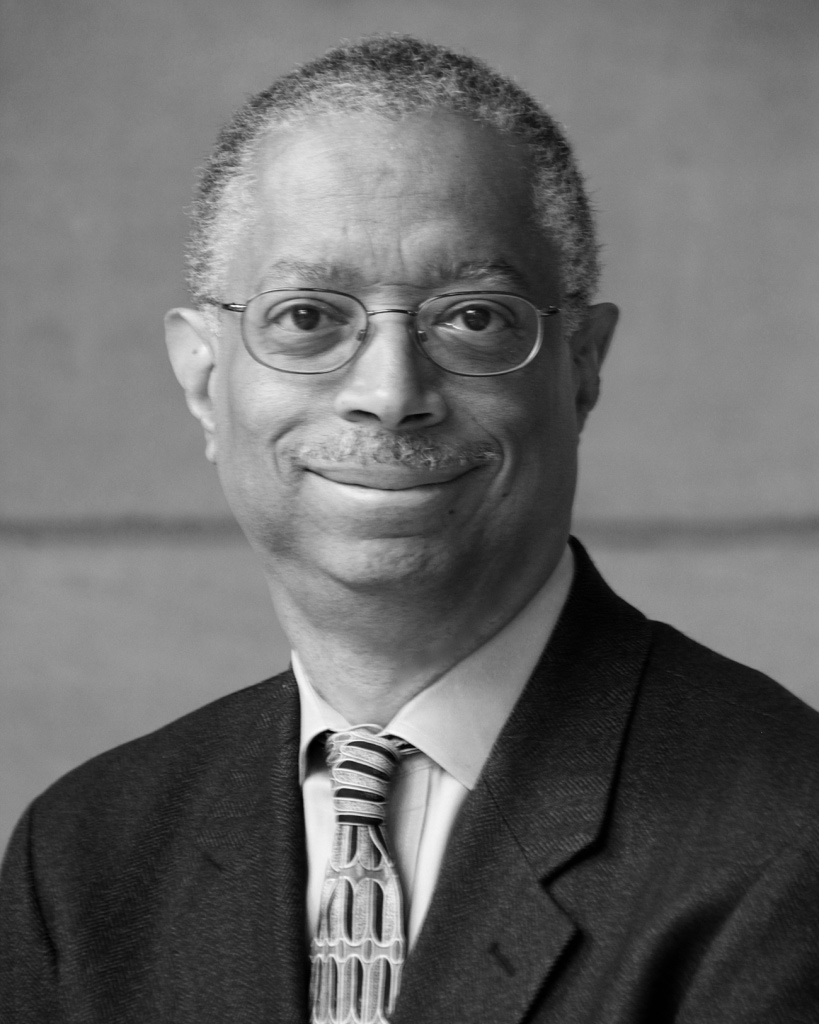
威廉·斯普里格斯(劳动经济学),美国劳工部前助理部长,任职期间主持政策办公室工作。现任美国劳联-产联首席经济学家,自2005年起担任霍华德大学经济学教授。研究领域包括劳动力问题、劳动、税收和公共政策。入职劳联-产联之前,曾在经济政策研究所和全国城市联盟等多个智库负责经济政策研究工作。还曾在商务部、小企业管理局和美国国会经济委员会担任职务。
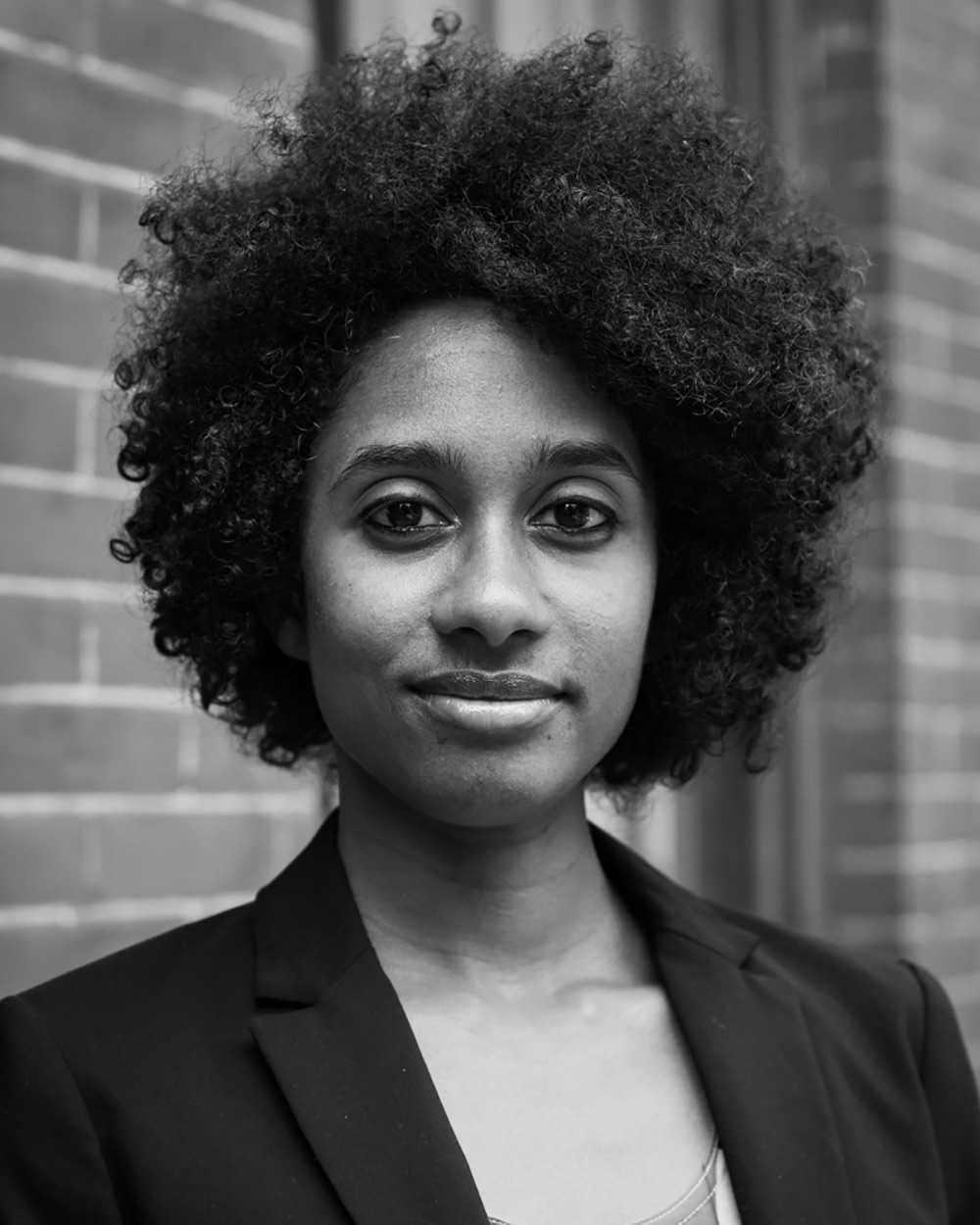
埃洛拉·德伦考特(劳动经济学)以研究劳动经济学、经济史和不平等为志业。现为普林斯顿大学经济系劳资关系项目博士后研究员,将于2020年7月加入加州大学伯克利分校,担任经济系和高盛公共政策学院的助理教授。
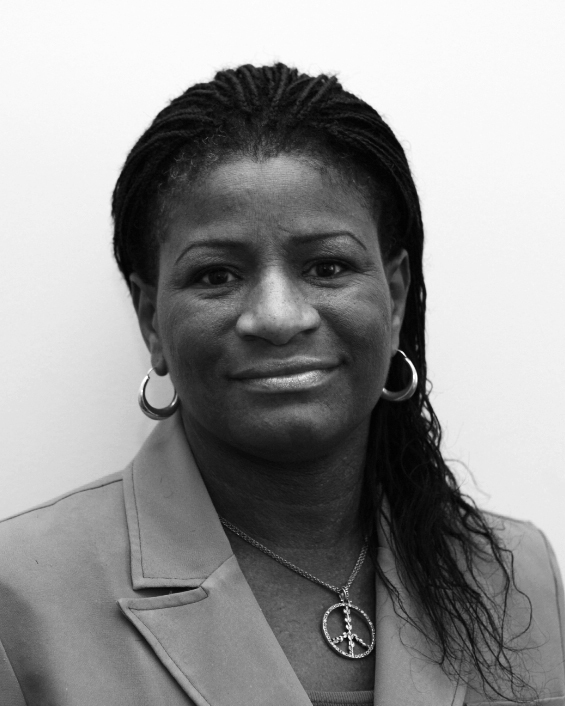
米歇尔·霍尔德(劳动经济学),纽约城市大学约翰·杰伊学院经济学助理教授,曾在非营利组织和政府部门任职经济学家十年之久。专注于研究美国劳动力市场中的黑人和妇女,其经济政策报告曾被《纽约时报》、《华尔街日报》、《纽约阿姆斯特丹新闻》和《El Diario》广为报道。2017年出版首部著作《大萧条时期的非洲裔美国人和劳动力市场》。
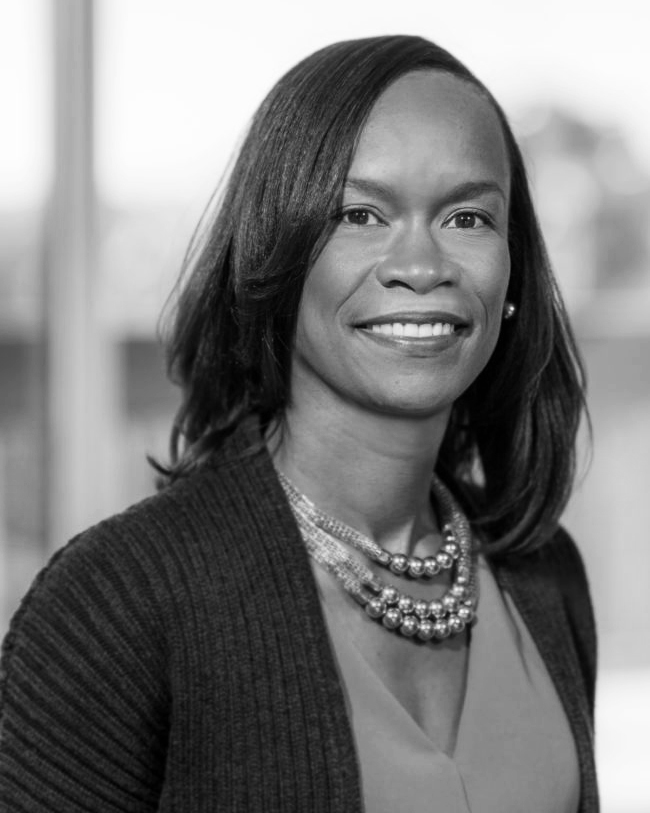
瓦莱丽·威尔逊(劳动经济学),经济政策研究所种族、族裔和经济项目主任。在涉及美国有色人种经济状况的专家报告和政策分析方面,该项目是一个备受认可的权威来源。加入经济政策研究所之前,曾任国家城市联盟华盛顿分局经济学家兼研究副总裁。她著述颇丰,笔触涉及影响美国经济不平等的方方面面,其中包括就业和培训、收入和财富差距、接受高等教育的机会和社会保险。
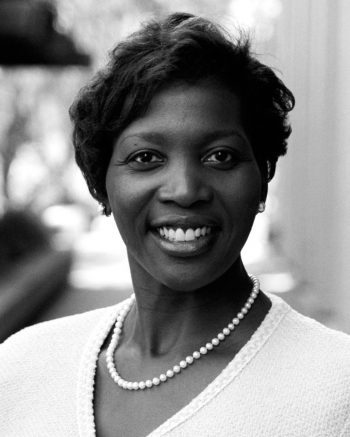
丽莎·库克(宏观经济学),密歇根州立大学经济学和国际关系学系教授。学术志趣包括经济增长和发展、金融机构和市场、创新和经济史。曾任斯坦福大学国家研究员,并受邀入职白宫,出任奥巴马总统经济顾问委员会高级经济学家。还曾担任国家经济协会主席,目前兼任美国经济学会夏季项目主任。(财富中文网)
译者:任文科
当全世界都在为根除系统性种族主义(乔治·弗洛伊德之死促使这一话题迅速跃入集体意识)而努力的时候,黑人经济学家很有必要成为家喻户晓的人物。这些学者的研究工作将引领我们度过当下,并缔造一个更加长久、黑人社区不再受压迫的未来。事实上,这种压迫随后也会伤害整个经济体系。
黑人对经济学兴趣浓厚,因为这门学科的核心关注点在于谁在何时何地得到了什么,以及为什么会这样,而黑人太过频繁地发现自己处于美国财富和收入差距的错误一方。但正如经济学家丽莎·库克和安娜·吉迪·奥普库-阿吉曼最近在《纽约时报》发表的文章“我入错了行”所示,他们在进入这一职业的过程中遭遇到重重障碍。2017年的最新数据显示,每年只有3.2%的经济学博士学位颁发给了黑人。根据美国经济学会在2019年发布的一份报告,有超过52%的黑人经济学家经历过种族主义和/或歧视。在30年来发表的所有顶级经济学论文中,仅有不到0.5%的文章明确涉及种族/族裔问题。
近100年过去了,自从美国第一位黑人经济学家萨迪·亚历山大于1921年在宾夕法尼亚大学获得博士学位以来,情况并没有太大变化。她以倡导经济包容和公正为己任,尽管在前民权时代,她被剥夺了作为一位经济学家的执业能力。即使她被刻意排除在这一职业之外,她仍然继续利用自身的经济学专长推荐惠及工人阶级的政策主张。尤为值得称道的是,她提出的联邦就业保障最终获得了罗斯福总统的支持,从此成为进步主义政治的基础概念。
学者朱利安·马尔沃和尼娜·班克斯一直致力于挖掘亚历山大的演讲中蕴含的丰富宝藏。这位前辈学人热衷于利用经济学,通过政策服务于边缘化的声音,而正是这条共同主线,把黑人经济学家的早期工作与目前在这一领域耕耘的黑人学者连接在一起。菲利斯·安·华莱士是第一位获得耶鲁大学经济学博士学位的女性,侧重于研究工作场所中的种族歧视和性别歧视。亚伯拉罕·林肯·哈里斯在20世纪20年代和30年代发表了多篇重量级的经济学论文,他注重利用“阶级分析、黑人经济生活和劳动来阐明种族和种族意识形态的结构性缺陷。”
为扭转这一领域对黑人的公然排斥,如今的黑人经济学家热衷于通过各种组织来拓展非裔同仁的上升空间。这些组织包括国家经济协会、美国经济学会、经济学界少数族裔地位委员会、妇女科学、公平和种族研究所,以及萨迪集体组织。
在六月节(六月节为每年的6月19日,又称奴隶解放日——译注)发布这份名单,意在呼吁世人关注,并庆贺黑人经济学家在不同专业领域的学术成就。这些经济学家中既有成名已久的学界楷模,也有新近崛起的后辈学人。他们的研究和政策分析不仅有助于公众就如何改善黑人社区现状展开更深入的讨论,而且还会帮助决策者制定造福于每个人的政策纲领。请注意:这份名单当然不是详尽无遗的。
每位经济学家的名字后面是他们的主要研究领域(标注在括号里)。
达尼亚·弗朗西斯(教育),波士顿马萨诸塞大学教授。研究范围非常广泛,包括教师在课堂上的看法对黑人女学生教育结果的影响,对非洲裔美国人的经济补偿等等。学术志趣涉及劳动经济学、公共财政学、教育经济学和阶层分化经济学等领域。
彼得·布莱尔(教育和工作的未来)任教于哈佛大学教育研究生院,并兼任该院劳动力研究项目联席主任。他还是美国国家经济研究局研究员、BE-Lab实验室首席研究员。BE-Lab是哈佛大学、克莱姆森大学和伊利诺伊大学厄巴纳-香槟分校合作创建的一个研究团队,致力于研究未来工作与未来教育之间的联系、劳动力市场歧视、职业许可和居住隔离等议题。
贾科瓦·威廉姆斯(种族和不平等)是经济政策研究所种族、族裔和经济项目的经济学家。她专注于探讨结构性种族主义在塑造种族经济差距方面的作用,涉及劳动力市场、住房、刑事司法、高等教育,以及对经济结果产生直接影响的其他领域。研究重点是南方文化,以及历史事件对南方黑人的政治行为和经济结果的影响程度。
克里斯汀·布罗迪(种族与不平等),迪拉德大学商学院院长、巴伦·希尔顿金融经济学教席教授、KBroad咨询公司所有者。最近的著述包括“传递与占用黑人身份的成本和收益”、“佐治亚州传统黑人大学的梦想与实践:在后种族主义美国的持续相关性”,以及“自动化对种族和工作构成的高风险”。
小威廉·达里蒂(种族与不平等),塞缪尔·杜布瓦·库克公共政策、非洲和非洲裔美国人研究教席教授、经济学教授、杜克大学塞缪尔·杜布瓦·库克社会公平中心主任。曾任杜克大学非洲和非裔美国人研究系主任、种族和族裔不平等研究网络创始主任。论文著述超过300篇,并在2005年开创了阶层分化经济学。他的研究重点是按种族、阶级和族裔划分的不平等、学校教育和种族成就差距、南北贸易和发展理论、肤色和劳动力市场结果、赔偿经济学、大西洋奴隶贸易与工业革命、经济学史,以及失业风险对社会心理的影响。最近与克尔斯滕·马伦合著《从这里到平等:如何在二十一世纪赔偿美国黑人》一书。
达里克·汉密尔顿(种族和不平等)是美国研究种族差异的主要经济学家之一,即将出任纽约新学院(The New School)种族、阶层分化和政治研究所的创始主任。研究领域极其广泛,从阶层分化经济学到经济和社会政策、种族、族裔、肤色主义、教育、卫生、劳动,再到资产和债务市场、家庭形成等等,不一而足。他的TED演讲有超过150万的点击量,在上一次总统大选期间引发了很多关于如何结束美国种族不平等的讨论。
特雷文·洛根(经济史)是俄亥俄州立大学经济系Hazel C. Youngberg教席杰出教授。作为国家经济协会迄今为止最年轻的主席,他专注于研究经济史和应用人口学。他拥有加州大学伯克利分校经济学博士学位。
威伦·约翰逊(国际经济学)是Komaza Inc.的总裁。这家咨询公司专注于提供经济和金融发展方面的指导和建议,包括小额信贷、安全部门资源管理,以及经济学在冲突管理中的作用。约翰逊有着广泛的非洲工作经历,最初是一名志愿教师,最近又担任非洲开发银行的美国执行董事。此外,她曾在美国联邦储备系统工作了20年,任职履历包括国际金融市场研究和运营职责。
彼得·布莱尔·亨利(国际经济学),纽约大学伦纳德·斯特恩商学院前院长、William R. Berkley经济学商学教授。著有《逆转:第三世界对第一世界增长的教益》一书。研究兴趣包括国际金融、新兴市场、国际经济政策、全球化与贸易,以及宏观经济学。
苏珊·柯林斯(国际经济学),密歇根大学临时教务长。2007年加入该校,在2017年之前一直担任杰拉尔德·R·福特公共政策学院院长。此前任教于乔治城大学和哈佛大学经济学系,并在布鲁金斯学会担任高级研究员(现在仍是该学会的非常驻研究员)。作为一位国际经济学家,她的研究兴趣包括理解和促进工业、新兴市场和发展中国家的经济增长。
桑迪莱·赫拉奇瓦约(国际经济学)的学术志趣包括国际贸易、国际金融和宏观经济学。她是国际货币基金组织的经济学家,致力于通过预测建模、文本分析和战略展望工具(如情景规划)来识别和评估全球风险。她也是国际事务黑人专业人员理事会成员、美国经济学会经济专业LGBTQ+个人地位委员会的首任成员。
埃博尼亚·华盛顿(公共财政),耶鲁大学教授,专攻政治经济学,致力于探究政治态度的形成,以及边缘化人口如何利用政治制度来实现经济需求等问题。在最近发表的一篇论文中,她把目光转向自己的职业,询问经济学家能做些什么来增加这一群体的种族和族裔多样性。
达蒙·琼斯(家庭金融和公共财政),芝加哥大学哈里斯公共政策学院副教授,其研究涉及公共财政、家庭金融和行为经济学这三大领域的交叉地带,尤为关注不平等问题。曾在斯坦福经济政策研究所担任博士后研究员(2009-10年),目前还是国家经济研究局的教职研究员。
朱利安·马尔沃(公共财政)长期以来一直以其进步和深刻的观察而闻名。她是一位劳动经济学家,曾被科内尔·韦斯特誉为“这个国家最反传统的公共知识分子”。她对种族、文化、性别及其经济影响等问题的公共对话所作的贡献,正在深刻地影响着21世纪美国的公众舆论。曾担任传统上只招黑人女性的贝内特学院的第15任校长。其著述涉及种族、阶层和黑人妇女经济学等领域。
威廉·斯普里格斯(劳动经济学),美国劳工部前助理部长,任职期间主持政策办公室工作。现任美国劳联-产联首席经济学家,自2005年起担任霍华德大学经济学教授。研究领域包括劳动力问题、劳动、税收和公共政策。入职劳联-产联之前,曾在经济政策研究所和全国城市联盟等多个智库负责经济政策研究工作。还曾在商务部、小企业管理局和美国国会经济委员会担任职务。
埃洛拉·德伦考特(劳动经济学)以研究劳动经济学、经济史和不平等为志业。现为普林斯顿大学经济系劳资关系项目博士后研究员,将于2020年7月加入加州大学伯克利分校,担任经济系和高盛公共政策学院的助理教授。
米歇尔·霍尔德(劳动经济学),纽约城市大学约翰·杰伊学院经济学助理教授,曾在非营利组织和政府部门任职经济学家十年之久。专注于研究美国劳动力市场中的黑人和妇女,其经济政策报告曾被《纽约时报》、《华尔街日报》、《纽约阿姆斯特丹新闻》和《El Diario》广为报道。2017年出版首部著作《大萧条时期的非洲裔美国人和劳动力市场》。
瓦莱丽·威尔逊(劳动经济学),经济政策研究所种族、族裔和经济项目主任。在涉及美国有色人种经济状况的专家报告和政策分析方面,该项目是一个备受认可的权威来源。加入经济政策研究所之前,曾任国家城市联盟华盛顿分局经济学家兼研究副总裁。她著述颇丰,笔触涉及影响美国经济不平等的方方面面,其中包括就业和培训、收入和财富差距、接受高等教育的机会和社会保险。
丽莎·库克(宏观经济学),密歇根州立大学经济学和国际关系学系教授。学术志趣包括经济增长和发展、金融机构和市场、创新和经济史。曾任斯坦福大学国家研究员,并受邀入职白宫,出任奥巴马总统经济顾问委员会高级经济学家。还曾担任国家经济协会主席,目前兼任美国经济学会夏季项目主任。(财富中文网)
译者:任文科
As the world grapples with uprooting systemic racism—a conversation catapulted into collective consciousness by the death of George Floyd—it is imperative that Black economists become household names. Their work will move us through the current moment to enable a long-lasting future that upends the oppression in the Black community that subsequently harms the economic system at large.
Economics—a discipline whose core focus is exploring who gets what, where, when, and why—is of great interest to Black people, who too often find themselves on the wrong side of America’s divides in wealth and income. But they’ve faced barriers in matriculating into the profession, as Lisa Cook and Anna Gifty Opoku-Agyeman noted in their recent New York Times article, “It Was a Mistake for Me to Choose This Field.” The most recent data, from 2017, show that only 3.2% of doctoral degrees in economics are awarded to Black people each year. More than 52% of Black economists experience racism and/or discrimination, according to a 2019 report by the American Economic Association, and less than half of 1% of all top economics papers across a 30-year period explicitly address race/ethnicity.
Nearly 100 years have passed, and not much has changed since America’s first Black economist, Sadie T.M. Alexander, obtained her Ph.D. from the University of Pennsylvania in 1921. She aimed to champion economic inclusion and justice, despite being denied the ability to practice as an economist in the pre–Civil Rights era. Even though she was deliberately excluded from the profession, she continued to use her economic expertise to recommend better policies for the working class such as the federal jobs guarantee, a concept embraced by President Franklin D. Roosevelt that has been a foundational concept in progressive politics ever since.
Scholars Julianne Malveaux and Nina Banks have been committed to unearthing Alexander’s legacy through her speeches. Her passion for using economics to serve marginalized voices through policy is a common thread that connects the earliest work of Black economists as well as current scholars in the field. Phyllis Ann Wallace, the first woman to receive a doctorate of economics at Yale University, focused on racial, as well as gender discrimination in the workplace. Abram Lincoln Harris, who published major economic studies in the 1920s and 1930s, made it a point to focus on “class analysis, black economic life, and labor to illustrate the structural inadequacies of race and racial ideologies.”
To turn the tide against blatant exclusion in their field, today’s Black economists have been keen on supporting pipeline efforts through a variety of organizations including The National Economic Association, the American Economic Association, the Committee on the Status of Minority Groups in the Economics Profession (CSMGEP), the Women’s Institute for Science, Equity and Race, and the Sadie Collective.
The list presented here, on Juneteenth, serves as a means to center and celebrate the work of Black economic experts across various specializations—both emerging and well-established. Their research and policy analysis should inform public discourse not only on how to improve the Black community’s reality, but in turn to make policy that is better for everyone. Please note: This list is certainly not exhaustive.
Each economist’s name is followed by their main area of specialization, in parentheses.
Dania Francis (Education) is a professor at the University of Massachusetts at Boston whose work spans from the implications of educational outcomes for Black female students based on perceptions of Black girls in the classroom to economic reparations for African Americans. Her research interests include labor economics, public finance, economics of education, and stratification economics.
Peter Q. Blair (Education and the Future of Work) is on the faculty of the Graduate School of Education at Harvard University, where he codirects the Project on Workforce. He serves as a faculty research fellow of the National Bureau of Economic Research (NBER) and the principal investigator of the BE-Lab, a research group with partners from Harvard University, Clemson University, and the University of Illinois at Urbana–Champaign. His group’s research focuses on the link between the future of work and the future of education, labor market discrimination, occupational licensing, and residential segregation.
Jhacova Williams (Race and Inequality) is an economist for the Economic Policy Institute’s Program on Race, Ethnicity, and the Economy (PREE). In this capacity, she explores the role of structural racism in shaping racial economic disparities in labor markets, housing, criminal justice, higher education, and other areas that have a direct impact on economic outcomes. Williams’s research has focused on Southern culture and the extent to which historical events continue to impact the political behavior and economic outcomes of Southern Blacks.
Kristen Broady (Race and Inequality) is the dean of the College of Business and Barron Hilton Endowed Professor of Financial Economics at Dillard University. She is also the proprietor of KBroad Consulting. Her most recent publications include “Passing and the Costs and Benefits of Appropriating Blackness,” “Dreaming and Doing at Georgia HBCUs: Continued Relevancy in Post Racial America,” and “Race and Jobs at High Risk to Automation.”
William Darity Jr. (Race and Inequality) is the Samuel DuBois Cook Professor of Public Policy, African and African American Studies, and Economics and the director of the Samuel DuBois Cook Center on Social Equity at Duke University. He has served as chair of the Department of African and African American Studies and was the founding director of the Research Network on Racial and Ethnic Inequality at Duke. With well over 300 publications, Darity launched the subfield of stratification economics in 2005. Darity’s research focuses on inequality by race, class, and ethnicity, schooling and the racial achievement gap, North-South theories of trade and development, skin shade and labor market outcomes, the economics of reparations, the Atlantic slave trade and the Industrial Revolution, the history of economics, and the social psychological effects of exposure to unemployment. His most recent book, coauthored with A. Kirsten Mullen, is From Here to Equality: Reparations for Black Americans in the Twenty-First Century.
Darrick Hamilton (Race and Inequality), one of the country’s leading economists examining racial disparity, will serve as the founding director of the newly created Institute for the Study of Race, Stratification, and Political Economy at The New School. His research spans the gamut from stratification economics through economic and social policy, race, ethnicity, and colorism, education, health, labor, asset and debt markets, and family formation. His TED Talk, with over 1.5 million views, incited much conversation during the past presidential election season about how to end inequality in America.
Trevon Logan (Economic History) is the Hazel C. Youngberg Trustees Distinguished Professor in the Department of Economics at The Ohio State University. As the youngest president of the National Economic Association to date, he specializes in economic history and applied demography. He obtained his Ph.D. in Economics from the University of California at Berkeley.
Willene Johnson (International Economics) is president of Komaza Inc., a consulting firm that offers instruction and advice on economic and financial development, including microfinance, security sector resource management, and the role of economics in conflict management. Johnson has worked extensively in Africa, where she was first a volunteer teacher and more recently the U.S. executive director at the African Development Bank. She worked for 20 years in the Federal Reserve System, where her assignments included both research and operational responsibilities in international financial markets.
Peter Blair Henry (International Economics) is a former dean of New York University’s Leonard N. Stern School of Business, where he is now the William R. Berkley Professor of Economics and Business. He’s the author of Turnaround: Third World Lessons for First World Growth. His research interests include international finance, emerging markets, international economic policy, globalization and trade, and macroeconomics.
Susan Collins (International Economics) is the interim provost at the University of Michigan. She joined the Michigan faculty in 2007, serving as the Joan and Sanford Weill Dean of the Gerald R. Ford School of Public Policy until 2017. Before coming to Michigan, she was on the economics faculty at Georgetown University and Harvard University, and a senior fellow at the Brookings Institution (where she retains a nonresident affiliation). She is an international economist whose research interests center on understanding and fostering economic growth in industrial, emerging market, and developing countries.
Sandile Hlatshwayo (International Economics) has research interests in the areas of international trade, international finance, and macroeconomics. She is an economist at the International Monetary Fund, where she helps identify and evaluate global risks through predictive modeling, text-based analytics, and strategic foresight tools (e.g., scenario planning). She also sits on the board of Black Professionals in International Affairs and serves as an inaugural member of the American Economic Association’s Committee on the Status of LGBTQ+ Individuals in the Economics Profession.
Ebonya Washington (Public Finance), a professor at Yale University, specializes in political economy. Her work explores the formation of political attitudes and how marginalized populations use the political system to attain economic needs. In a recent paper she turns her lens on her own profession, asking what economists can do to increase racial and ethnic diversity in their ranks.
Damon Jones (Household Finance and Public Finance) is an associate professor at the University of Chicago Harris School of Public Policy. He conducts research at the intersection of three fields—public finance, household finance, and behavioral economics—and focuses on topics of inequality. He was a postdoctoral fellow at the Stanford Institute for Economic Policy Research (2009–10) and is a Faculty Research Fellow at the National Bureau of Economic Research.
Julianne Malveaux (Public Finance) has long been recognized for her progressive and insightful observations. As a labor economist, Malveaux has been described by Cornel West as “the most iconoclastic public intellectual in the country.” Her contributions to the public dialogue on issues such as race, culture, gender, and their economic impacts are shaping public opinion in 21st-century America. She was the 15th president of the historically Black all-women’s school Bennett College. Her notable works include writings on race, class, and Black women’s economics.
William Spriggs (Labor Economics) is the former assistant secretary for the Office of Policy at the U.S. Department of Labor. He currently serves as the chief economist to the AFL-CIO and has been professor of economics at Howard University since 2005. Spriggs’s economic expertise lies in workforce issues, labor, tax, and public policy. Prior to his position at AFL-CIO, he led economic policy development at several think tanks such as the Economic Policy Institute and the National Urban League. He has also held roles at the Department of Commerce, the Small Business Administration, and the Economic Committee of the U.S. Congress.
Ellora Derenoncourt (Labor Economics) is an economist with research interests in labor economics, economic history, and inequality. She is currently a postdoctoral research associate in the Industrial Relations Section of the Department of Economics at Princeton University. In July 2020, she will join the University of California at Berkeley as an assistant professor in the Department of Economics and the Goldman School of Public Policy.
Michelle Holder (Labor Economics) is an assistant professor of Economics at John Jay College, City University of New York. Prior to joining the John Jay faculty, she worked as an economist for a decade in both the nonprofit and government sectors. Her research focuses on blacks and women in the American labor market, and her economic policy reports have been covered by the New York Times, the Wall Street Journal, the New York Amsterdam News, and El Diario. Her first book, African American Men and the Labor Market During the Great Recession, was released in 2017.
Valerie Wilson (Labor Economics) is the director of the Economic Policy Institute’s Program on Race, Ethnicity, and the Economy (PREE), a nationally recognized source for expert reports and policy analyses on the economic condition of America’s people of color. Prior to joining EPI, Wilson was an economist and vice president of research at the National Urban League Washington Bureau. She has written extensively on various issues impacting economic inequality in the United States—including employment and training, income and wealth disparities, access to higher education, and social insurance.
Lisa Cook (Macroeconomics) is a professor in the Department of Economics and in International Relations at Michigan State University. Among her current research interests are economic growth and development, financial institutions and markets, innovation, and economic history. She was a National Fellow at Stanford University and served in the White House as a senior economist at the Council of Economic Advisers under President Obama. She also served as president of the National Economic Association and is currently director of the American Economic Association Summer Program.
Update: This article was updated on June 22 to more accurately reflect the biographies of Dania Francis, Damon Jones, William Spriggs, and Susan Collins.













